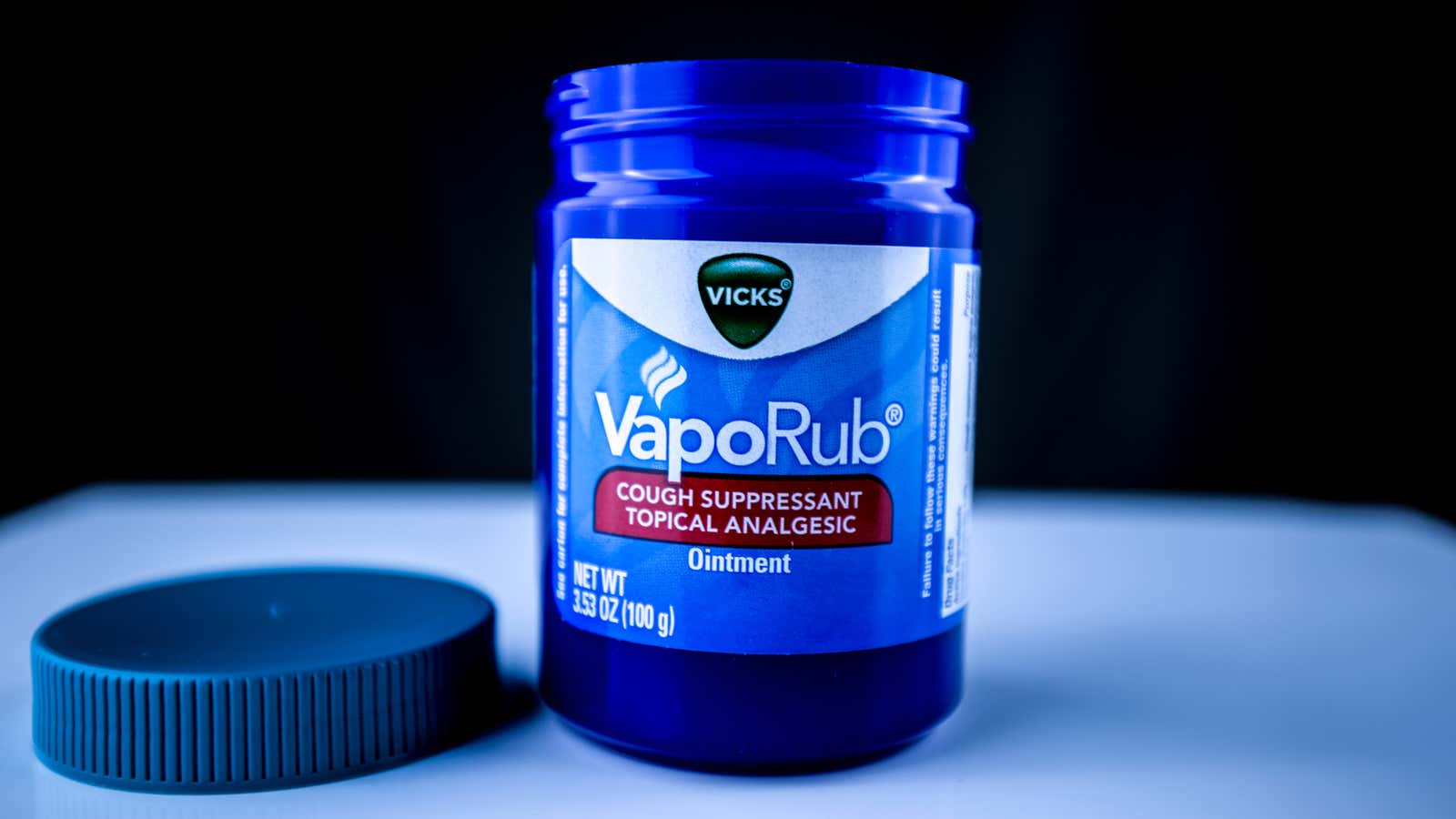Does Vicks VapoRub Really Treat Toenail Fungus?

Among those suffering from toenail fungus, it has long been rumored that the over-the-counter Vicks VapoRub has a hidden podiatric effect: it supposedly treats toenail fungus.
A 2009 New York Times article confirmed an unexpectedly miraculous cure, citing one study that noted that one of the active ingredients in the ointment, thymol, had unexpected antifungal properties. Herbal medicine enthusiasts have probably enjoyed the scientific evidence because thymol is a chemical found in the oil of the common home herb thyme.
Perhaps due to the insignificance of toenail fungus in light of other, more pressing health problems, the intrigue around this alleged drug is still ongoing. And, obviously, the question remains: does it really work?
What did the New York Times article say?
Researchers studied the effects of the herb thyme on treating toenail fungus, a condition that, while not usually harmful, eats up the expectedly large proportion of Americans’ medical bills each year. Over-the-counter nail fungus medications have several disadvantages: they are expensive, do not work well, and have many side effects. Here is what The New York Times reported in 2009 on research involving the use of herbal medicines such as thyme to treat dermatophytes, a common type of fungus that humans contract through contact with other people, animals, and soil.
In one study, scientists tested the antifungal effects of ingredients in a breast rub. Of the seven ingredients, thymol was one of the most effective in inhibiting the growth of dermatophytes that cause nail fungus. Other animal studies have also shown thymol oil to be effective against dermatophytes. Research has also shown that thymol oil destroys another cause of nail fungus, Candida, by disrupting its cell membranes and metabolism.
Does the rest of the podiatry world believe this?
Not really. There is not enough scientific literature directly related to the use of Vicks VapoRub and thymol to make a definitive conclusion about whether it will help treat toenail fungus. Most likely, your podiatrist will not advise you to use it for this purpose.
Written for Podiatry Today in 2016, Tracey Vlahovic has studied one of the most influential studies in this area and came to the conclusion that not enough evidence to show that this particular ointment is a good treatment.
Time will tell if this ointment can actually kill the fungus or, due to its ointment properties, simply create a more hydrated nail element that gives the appearance of a healthier nail.
In addition, Dr. Christopher Hull, a dermatologist at the University of Utah, recently stated that the remedy “probably won’t help.” But that won’t hurt anything either. “
Hull went on to explain why topical treatments are usually ineffective:
There are many such things. Many people use vinegar, tea tree oil. The tricky part of any of these topical medications is that they don’t penetrate the nail block very well. So it is very difficult to bring them, in fact, to the fungus in the nail block. This is why many prescription topical medications have such limited effects.
It is best to take all antifungal medications your doctor recommends. Your medicine cabinet may not have an exciting over-the-counter medication, but at least your doctor can prescribe a medication that will work.
This story was originally published in 2009 and was updated on December 11, 2020 with more complete and up-to-date information, and in line with Lifehacker’s style guidelines.